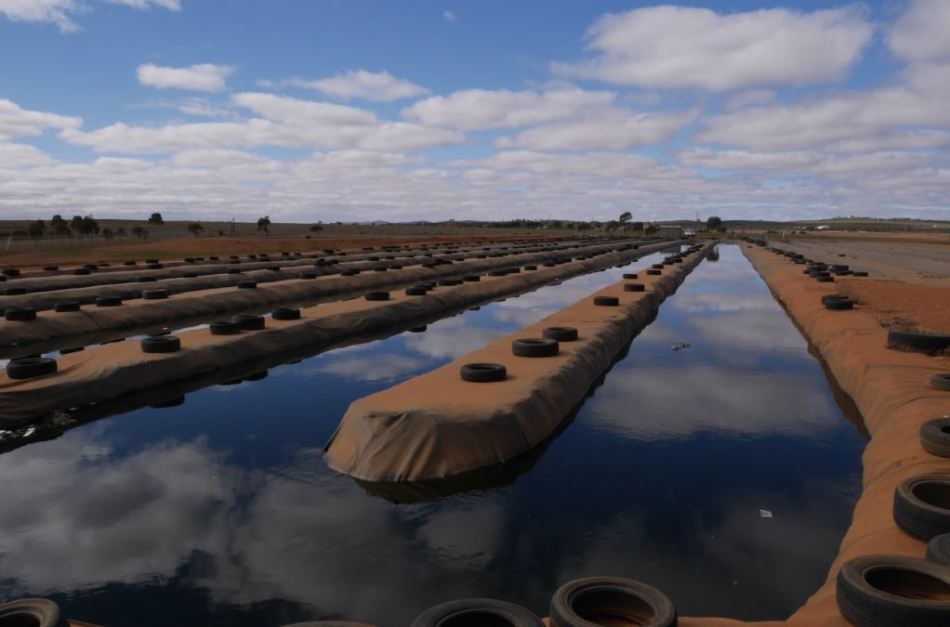Nov 13 2019
Sustainable purification of wastewater by naturally occurring algae is an outstanding way for regional towns to reuse precious water – and reduce a town’s carbon footprint and power usage at the same time, says environmental health Professor Howard Fallowfield.
 Peterborough wastewater ponds
Peterborough wastewater ponds
The remarkable wastewater treatment model – which is now part of the World Health Organisation’s sanitation safety planning initiative – has just won the SA Australian Water Association Infrastructure Project Innovation award.
Microbiologist Professor Fallowfield says the latest project near South Australia’s Mid North township of Peterborough is a great example of not only helping the environment but also supporting better health standards and the local economy.
“Before the high rate algal pond (HRAP) was built, all households and businesses in Peterborough disposed of their wastewater on site via septic tanks or disposal, which often resulted in raw sewage problems in people’s backyards,” says Flinders University Professor Fallowfield, who was instrumental in designing and establishing ponds at Kingston-on-Murray and now Peterborough, which is the largest of its kind in the Australia.
Peterborough is similar to other small country towns. With a population of 1500 people and located 250km north of Adelaide in the southern Flinders Ranges, water and power are costly to deliver.
The town’s two HRAPs, each 5000 m2 in size and just 0.3-0.5 metres deep, were built with funding came from the District Council of Peterborough, the SA Government Community Wastewater Management Scheme coordinated by the Local Government Association of SA, and the Australian Government though the National Stronger Regions Fund.
Professor Fallowfield says the Peterborough system is a better solution for low-energy and carbon footprint, both during construction and operation, than conventional lagoon systems and regular electro-mechanical wastewater treatment plants.
In the large shallow ponds, wastewater is exposed to disinfecting sunlight to reduce pathogens while naturally occurring microalgae carries out its purification function.
“The reduced surface area and shorter retention time of HRAPs halves the evaporative losses, increasing the volume of treated wastewater available for reuse by communities in water-scarce regions like those in rural South Australia.”
The wastewater treatment project has supported the expansion of the local feral camel abattoir in Peterborough. SAMEX has become a leading local employer, growing to 80 staff from 10 in 2012, including Indigenous employees and workers from the Ngaanyatjarra Camel company.
The benefits for public health of a sustainable centralised HRAP system has the potential to redefine the approach to wastewater treatment in rural communities around the world.
Researchers from the University of Nantes in France have already visited Peterborough to explore the opportunities for collaboration and application of the system to rural communities in France.
Long-running project supporter Colin Steele, managing director of Canberra-based consultancy Section 51, says the project is a fine example of University expertise teaming with government and other partners.
“The AWA award acknowledges that this project is a real and living example of how a wastewater treatment project can be solved though partnership and innovation that incorporate sustainable design principles aimed at achieving social, economic and environmental outcomes,” Mr Steele says
The project has gained international attention in recent years after Professor Fallowfield presented at a WHO/UNESCO workshop at the Bill and Melinda Gates Foundation, Seattle. This led to the HRAP validation as a case study in the Global Water Pathogen Project, which is supporting global implementation of the WHO Sanitation Safety Planning Manual.
The Peterborough project is now in the running for the national AWA awards to be held in Adelaide in May 2020.